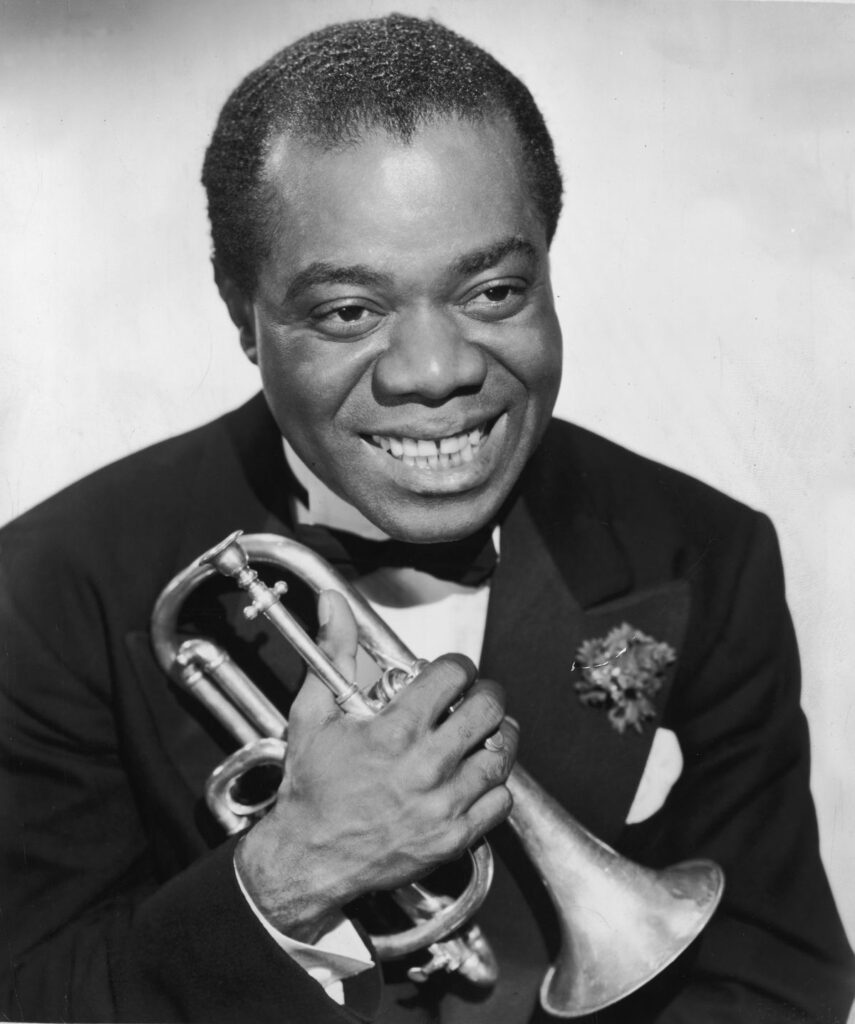Louis Armstrong, often referred to as “Satchmo” or “Pops,” was a jazz icon whose influence resonates through the ages. Here are 10 fascinating facts about this legendary musician:
- Early Life: Louis Armstrong was born on August 4, 1901, in New Orleans, Louisiana. His impoverished upbringing in the city’s rough neighborhoods exposed him to the vibrant musical culture of the area, including jazz, blues, and ragtime.
- Trumpet Virtuoso: Armstrong began playing the cornet at a young age, later switching to the trumpet. He quickly gained recognition for his exceptional talent, characterized by his innovative improvisational style, powerful tone, and virtuosic technique.
- Breakthrough with the Hot Five and Hot Seven: In the 1920s, Armstrong recorded a series of groundbreaking sessions with his Hot Five and Hot Seven bands. These recordings, featuring classics like “West End Blues” and “Potato Head Blues,” showcased Armstrong’s unparalleled skill as a soloist and transformed the landscape of jazz music.
- Scat Singing Pioneer: Armstrong popularized scat singing, a vocal improvisation technique where nonsensical syllables are sung in place of lyrics. His recording of “Heebie Jeebies” in 1926 is often cited as one of the earliest examples of scat singing in jazz.
- Global Ambassador of Jazz: Armstrong’s charisma and talent made him an international sensation. He toured extensively around the world, spreading the joy of jazz to audiences everywhere and earning acclaim for his infectious stage presence and engaging performances.
- Film and Television Appearances: Beyond his musical endeavors, Armstrong also appeared in numerous films and television shows. Notable appearances include his roles in “High Society” (1956) alongside Bing Crosby and Grace Kelly, and “Hello, Dolly!” (1969) with Barbra Streisand.
- Civil Rights Activism: Despite facing discrimination throughout his life, Armstrong remained a vocal advocate for civil rights. He used his fame to speak out against racial injustice and performed at benefit concerts for organizations such as the NAACP.
- Ambassador of Goodwill: Armstrong was appointed as a “Goodwill Ambassador” by the U.S. State Department in 1960. He embarked on several tours sponsored by the government, promoting American culture and diplomacy through his music.
- Hit Songs: Throughout his career, Armstrong recorded numerous hit songs that have since become jazz standards. Some of his most famous recordings include “What a Wonderful World,” “Hello, Dolly!,” and “La Vie En Rose,” which continue to be beloved by audiences worldwide.
- Legacy: Louis Armstrong’s influence on jazz and popular music is immeasurable. His innovative trumpet playing, soulful vocals, and joyful spirit have left an indelible mark on the world of music, inspiring generations of musicians and earning him a place among the greatest artists of all time.
Louis Armstrong’s enduring legacy as a musician, entertainer, and humanitarian continues to inspire and uplift audiences around the globe, cementing his status as one of the most influential figures in the history of music.


No responses yet